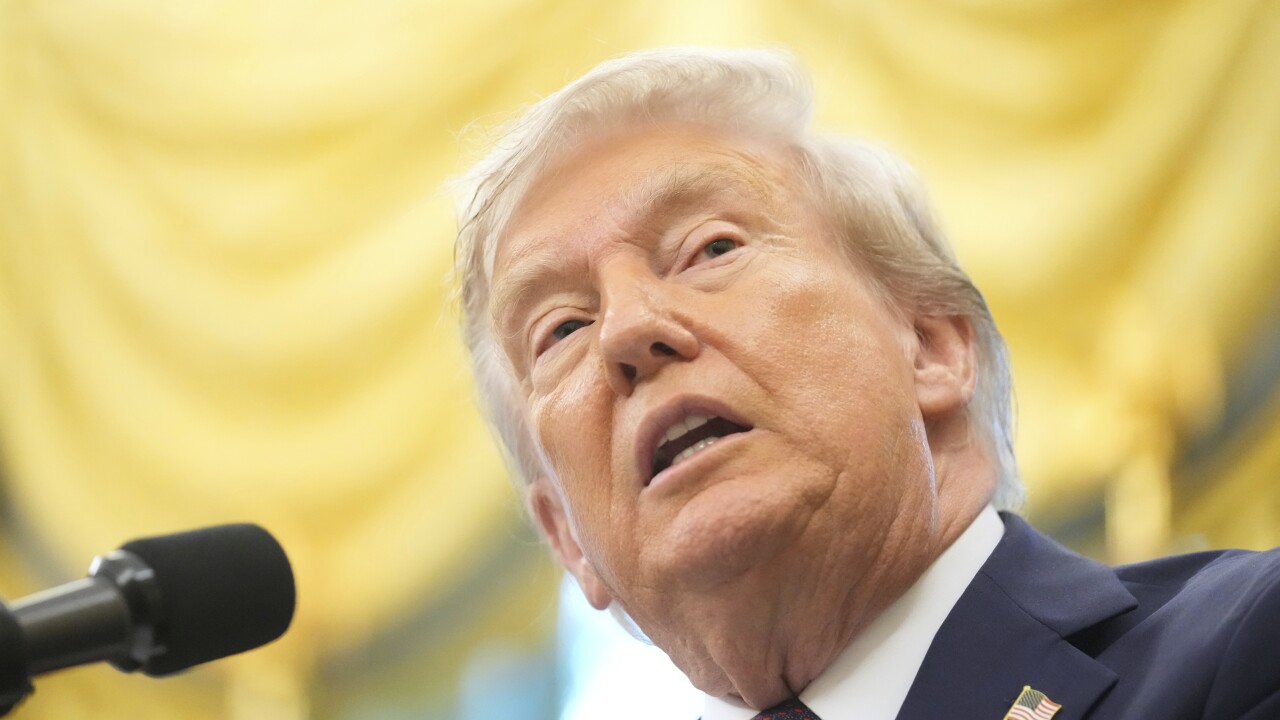A federal appeals court panel ruled Tuesday that President Donald Trump cannot use an 18th-century wartime law to speed the deportations of people his administration accuses of membership in a Venezuelan gang, blocking a signature administration push that is destined for a final showdown at the U.S. Supreme Court.
A three-judge panel of the 5th U.S. Circuit Court of Appeals, one of the most conservative federal appeals courts in the country, agreed with immigrant rights lawyers and lower court judges who argued the Alien Enemies Act of 1798 was not intended to be used against gangs like Tren de Aragua, the Venezuelan group Trump targeted in his March invocation.
Lee Gelernt, who argued the case for the ACLU, said Tuesday: “The Trump administration’s use of a wartime statute during peacetime to regulate immigration was rightly shut down by the court. This is a critically important decision reining in the administration’s view that it can simply declare an emergency without any oversight by the courts.”
The Department of Homeland Security did not immediately respond to a request for comment.
The administration deported people designated as Tren de Aragua members to a notorious prison in El Salvador where, it argued, U.S. courts could not order them freed.
In a deal announced in July, more than 250 of the deported migrants returned to Venezuela.
RELATED STORY | DOJ approves up to 600 military lawyers to serve as temporary immigration judges
The Alien Enemies Act was only used three times before in U.S. history, all during declared wars — in the War of 1812 and the two World Wars. The Trump administration unsuccessfully argued that courts cannot second-guess the president’s determination that Tren de Aragua was connected to Venezuela’s government and represented a danger to the United States, meriting use of the act.
In a 2-1 ruling, the judges said they granted the preliminary injunction sought by the plaintiffs because they “found no invasion or predatory incursion” in this case.
The decision bars deportations from Texas, Louisiana and Mississippi. In the majority were U.S. Circuit Judges Leslie Southwick, a George W. Bush appointee, and Irma Carrillo Ramirez, a Joe Biden appointee. Andrew Oldham, a Trump appointee, dissented.
The majority opinion said Trump’s allegations about Tren de Aragua do not meet the historical levels of national conflict that Congress intended for the act.
“A country’s encouraging its residents and citizens to enter this country illegally is not the modern-day equivalent of sending an armed, organized force to occupy, to disrupt, or to otherwise harm the United States,” the judges wrote.
In a lengthy dissent, Oldham complained his two colleagues were second-guessing Trump’s conduct of foreign affairs and national security, realms where courts usually give the president great deference.
“The majority’s approach to this case is not only unprecedented—it is contrary to more than 200 years of precedent,” Oldham wrote.
The panel did grant the Trump administration one legal victory, finding the procedures it uses to advise detainees under the Alien Enemies Act of their legal rights are appropriate.
The ruling can be appealed to the full 5th Circuit or directly to the U.S. Supreme Court, which is likely to make the ultimate decision on the issue.
Indeed, the ruling and dissent both seemed to acknowledge the judges were weighing in on issues destined to be settled only by the nation's highest court, repeatedly noting the unprecedented nature of the case and delving into 18th-century conflicts and other landmark events in the nation's early decades as justification.
The Supreme Court has already gotten involved twice before in the tangled history of the Trump administration's use of the AEA. In the initial weeks after the March declaration, the court ruled that the administration could deport people under the act, but it unanimously found that those targeted needed to be given a reasonable chance to argue their case before judges in the areas where they were held.
Then, as the administration moved to rapidly deport more Venezuelans from Texas, the high court stepped in again with an unusual, post-midnight ruling that they couldn't do so until the 5th Circuit decided whether the administration was providing adequate notice to the immigrants and could weigh in on the broader legal issues of the case. The high court has yet to address whether a gang can be cited as an alien enemy under the AEA.




